St. Patrick’s Day Parade 2014: Top 10 Largest Parades; Schedules And Route Maps For New York, Boston, Chicago And More
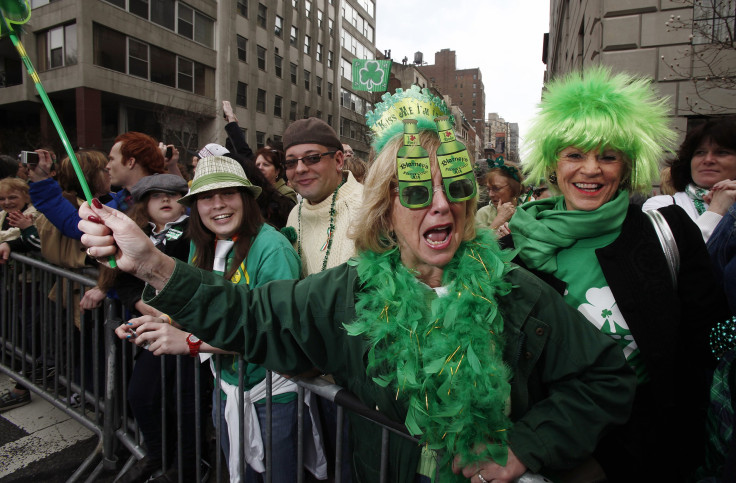
St. Patrick was known for centuries in Europe as the “Apostle of Ireland,” but his legacy grew even larger in the U.S. after waves of mass immigration to America from Ireland began in the 1600s. Today, nearly 35 million Americans list their heritage as Irish, according to 2010 Census data, which is seven times the population of Ireland itself.
Out of a total U.S. population of 309 million, those who identify as having Irish ancestry comprise 11 percent of the population, making Irish-Americans the second largest group of Americans based on nationality or ancestry. German-Americans, who number nearly 48 million, are the largest such group of Americans.
However, for one day in March, the numbers above don’t apply, because on St. Patrick’s Day, “everyone’s Irish,” as the saying goes.
Mass celebration of St. Patrick’s Day as a holiday has become a ritual in the U.S., and today the holiday celebrates not only the patron saint of Ireland, Saint Patrick, who was known for bringing Christianity to the country, but Ireland itself, including its rich history and culture.
Celebrating St. Patrick’s Day is something that many Irish-Americans don’t do lightly. According to Time, St. Patrick’s Day is credited as the “drunkest holiday” in the U.S. after New Year’s Eve. One theory that attempts to explain the connection between alcohol and St. Patrick’s Day posits that, among his many other accomplishments, Saint Patrick brought the wonders of distillation to the Emerald Isle.
Perhaps the drinking associated with the holiday has something to do with the history of the masses of people who congregate at the many St. Patrick’s Day parades that take place across the country. Parades are held in every major city, especially in urban areas with large Irish-American populations, such as Boston, which is in Massachusetts, a state where 23% of its residents claim Irish ancestry.
Boston has hosted its annual St. Patrick’s Day Parade, the nation’s longest-running public parade, since 1737. The second oldest annual St. Patrick’s Day Parade is held in New York City, which had its first St. Patrick’s Day Parade in 1762 (fourteen years before the Declaration of Independence.), and Philadelphia, which had its first in 1771.
While virtually every state, city, town and bar hosts its own St. Patrick’s Day celebration, we’ve compiled data to determine the 10 largest parades based on attendance and city population. As a bonus, we’ve also included the date, time and route map for cities like New York, Boston, Chicago and more.
#1. New York, N.Y.
It’s the most populous U.S. city, so it comes as no surprise that the Big Apple takes the cake on for hosting the country's largest St. Pat’s celebration, even though only about 5 percent of its 8 million people are of Irish descent.
Parade Website: http://nycstpatricksparade.org
First Parade: 1762
Spectators: Over 2 million
City Population: 8,175,133
Date And Time: Monday, March 17, 2014; 11:00 a.m.
Location and Route Map: Runs up 5th Avenue beginning at 44th Street and finishes at 79th Street.
Viewing Info: NBC Channel 4 with live stream on website.
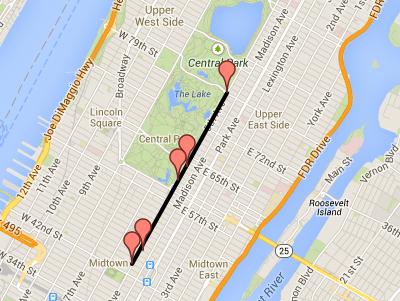
#2. Chicago, Ill.
The parade is only one part of the big celebration for the Irish-themed weekend in Chicago; The city is famous for Dyeing The River, an event whose participants add dye to the Chicago River to temporarily turn it green.
Website: http://www.chicagostpatsparade.com
First Parade: 1843
Spectators: 1 million
City Population: 2,695,598
Date And Time: Saturday, March 15, 2014; 12:00 p.m.
Location and Route Map: Starts at Balbo and Columbus and travels north on Columbus Drive before ending at the front of Buckingham Fountain.
Viewing Info: WLS/ABC 7
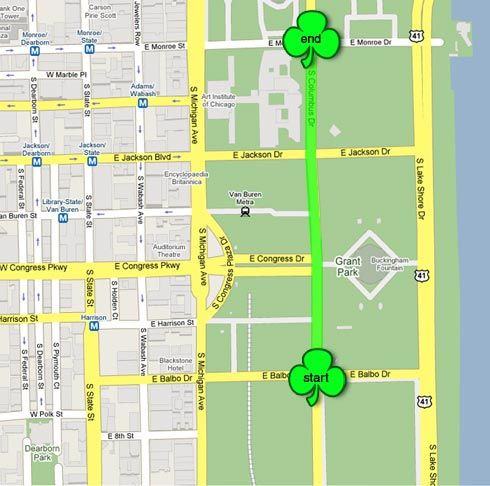
#3. Boston, Mass.
With nearly one-quarter of its population claiming Irish ancestry, the “Southie” parade, named for its location in South Boston, should not be missed if you're a St. Patrick's Day enthusiast. It’s also the oldest city parade in America, as it was first held in 1737. It has been held annually in its current form since 1901.
Website: http://www.southbostonparade.org
First Parade: 1737
Spectators: 600,000 to 1 million
City Population: 617,594
Date And Time: Sunday, March 16, 2014; 1 p.m.
Location and Route Map: Starts on West Broadway and eventually ends at Dorchester Avenue.
Viewing Info: Unknown
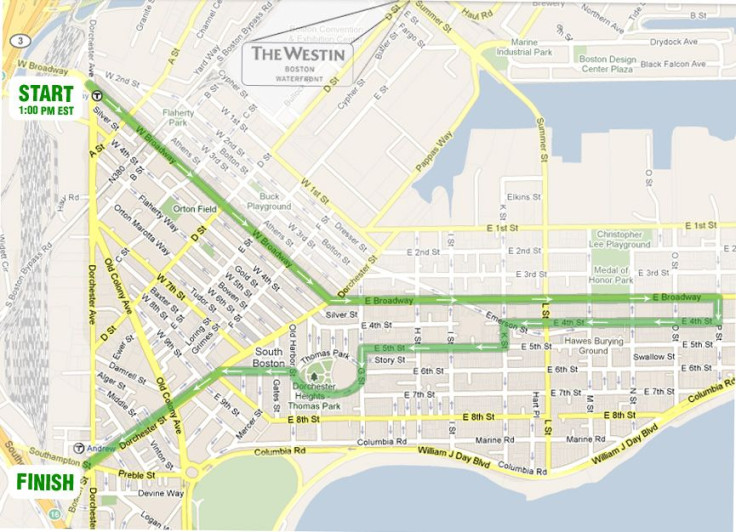
#4. Savannah, Ga.
Measuring parade size by number of spectators relative to a city’s population, Savannah would home to the largest St. Patrick’s Day parade in the U.S., with 750,000 estimated attendees.
Website: http://savannahsaintpatricksday.com
First Parade: 1824
Spectators: 750,000
City Population: 136,286
Date And Time: Monday, March 17, 2014; 10:15 a.m.
Location and Route Map: Begins on Gwinette St. and Abercorn St. and eventually ends on Harris St. and Bull St.
Viewing Info: WTOC 11 telecast beginning at 8 a.m.
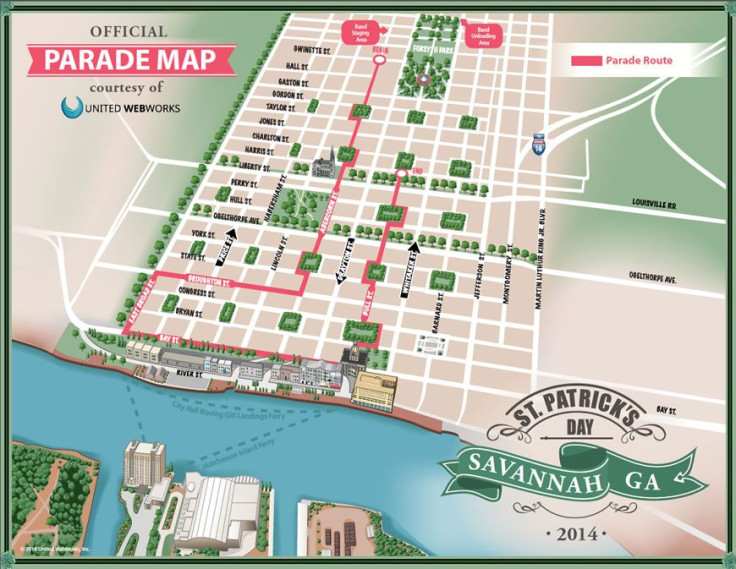
#5. Kansas City, Mo.
Irish population in 19th century Kansas City exploded, so the parade on March 17 became a staple, as it continues to be today.
Website: http://kcirishparade.com
First Parade: 1973
Spectators: 200,000
City Population: 459,787
Date And Time: Monday, March 17, 2014; 11 a.m.
Location and Route Map: Begins at Linwood/33rd Street and goes south to 43rd Street.
Viewing Info: WDAF Fox4 coverage begins on television at 11:30 a.m. and live stream from 11:00 AM at http://www.fox4kc.com/
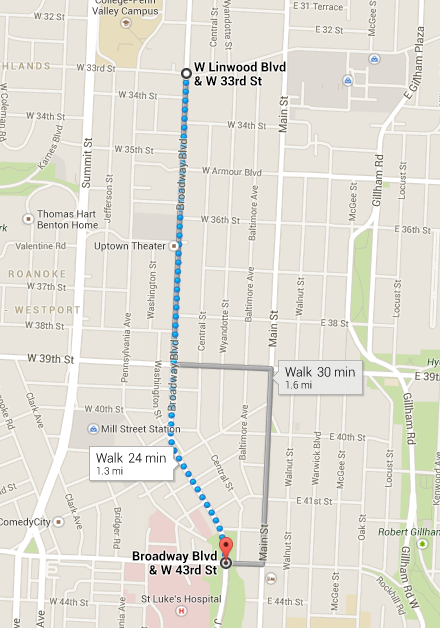
#6. Scranton, Pa.
A Scranton-native, I can attest the parade held in The Electric City, which bills itself as the country’s second largest based on attendance to resident ratio, is quite the festival.
Website: http://www.stpatparade.com
First Parade: 1962
Spectators: 110,000
City Population: 76,089
Date And Time: Saturday, March 15, 2014; 11:45 a.m.
Location and Route Map: Begins on Wyoming Avenue at St. Peter’s Cathedral and ends on Washington Avenue. http://www.stpatparade.com/paraderoute.php
Viewing Info: WBRE Ch. 28

#7. San Francisco, Calif.
Despite being more than 5,000 miles away from Ireland, the Irish population in the Bay Area as well as California is high, making St. Patrick’s Day one of the biggest parades in the state.
Website: http://uissf.org
First Parade: 1852
Spectators: 105,000
City Population: 805,235
Date And Time: Saturday, March 15, 2014; 11:30 a.m.
Location and Route Map: Beings on 2nd and Market Street and ends at Civic Center.
Viewing Info: Unknown
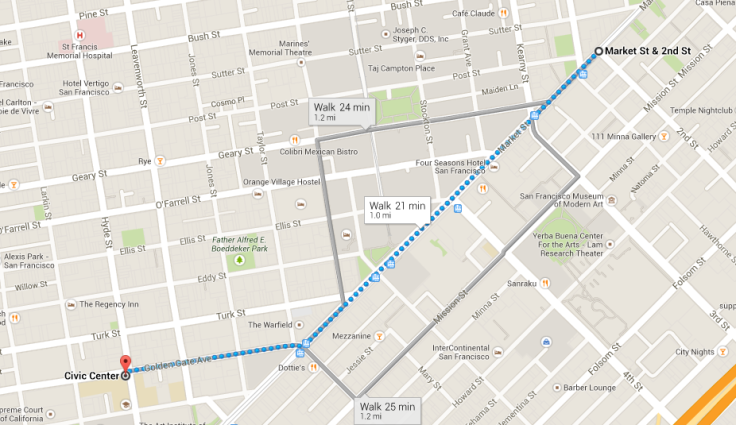
#8. Philadelphia, Pa.
The parade in Philadelphia is older than the nation itself, having been first celebrated five years before the Declaration of Independence was signed.
Website: http://www.philadelphiastpatsparade.com
First Parade: 1771
Spectators: 100,000
City Population: 1,526,006
Date And Time: Sunday, March 16, 2014; 12 p.m. noon
Location and Route Map: Starts at 16th & JFK Blvd and moves down Ben Franklin Boulevard.
Viewing Info: Coverage begins at 1:00 pm until 4:00 pm on The CWPhilly (WPSG-TV).
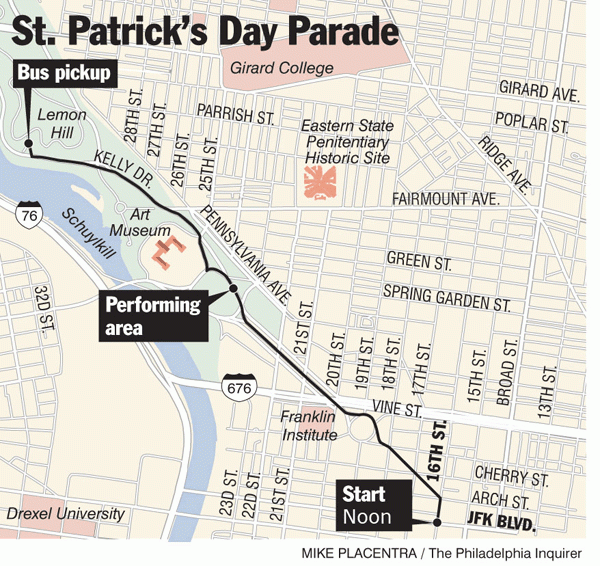
#9. Syracuse, N.y.
It may not be the size of the New York City parade, but the Syracuse parade service the 2 million Irish-Americans in the state of New York.
Website: http://www.syracusestpatricksparade.org
First Parade: 1982
Spectators: at least 30,000
City Population: 145,170
Date And Time: Saturday, March 15, 2014; 12 p.m. noon
Location and Route Map: Moves down South Salina Street from James Street to East Onondaga Street.
Viewing Info: ABC NewsChannel 9 WSYR and live stream online at http://LocalSYR.com/Live.
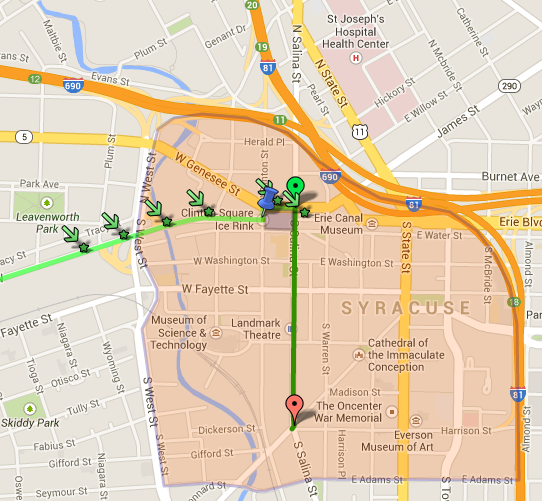
#10. Hot Springs, Ark.
It may be known as the “Annual World’s Shortest St. Patrick’s Day Parade,” but that doesn’t mean it’s the country’s smallest at number 10. This year, Jim Belushi will be in attendance, too.
Website: http://www.shorteststpats.com
First Parade: 2004
Spectators: 30,000
City Population: 35,193
Date And Times: Monday, March 17, 2014; 6:30 p.m.
Location and Route Map: Bridge Street
Viewing Info: Unknown
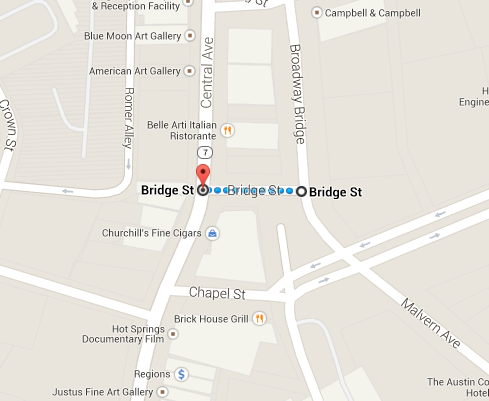
© Copyright IBTimes 2024. All rights reserved.






















